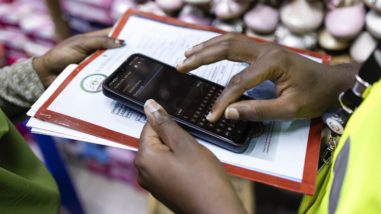So let’s say you were trying to make a big dent in problems facing people in poor countries, like inequality, poor health and nutrition, illiteracy, and corruption. Let’s say you had big ideas, lots of access to powerful decision makers and the smartest analysts, but relatively little money compared to the scale of the problems. Let’s say you wanted to make a lasting contribution, but were subject to priorities that were shaped by politicians with short time horizons. Let’s say you know that real solutions need to be appropriate to local conditions and “owned” by affected communities—but you’re an outsider. Let’s say, in other words, that you were an aid agency. How could you spend your money and use your connections to make the biggest difference?
One way—and I’ll even go out on a limb here and say it’s the best way—is to invest in learning about the effectiveness of policies and programs designed to solve those major social and economic problems you’re trying to tackle. You could evaluate programs funded by aid agencies, national governments, and even the private sector—and use your experience and networks to ensure sound methodologies, the relevance of the evaluation questions, and full use of the findings. You could help foster good governance by helping countries develop and refine the best interventions in particular contexts, and by encouraging them to be transparent about whether publicly-funded actions were succeeding or not. If you did that, you’d be leveraging your limited funds to reinforce country-owned, evidence-based policies and programs. You’d be fulfilling your mission.
You could get even more bang for your buck by funding evaluations collaboratively, benefiting from economies of scale and scope that come with pooled money and pooled thinking: a shared evaluation agenda; opportunities for replication in varied settings to figure out what’s generalizable and what’s not; and standard practices for quality assurance and dissemination of findings.
And the good news is that you could start intensifying your evaluation efforts today, because all the pieces are in place. The evaluation field has developed a wide range of methods and leading academics around the world are focused on impact measurement. In fact, program evaluation is seen as one of the most appealing specialties by bright young development professionals. Several organizations, particularly the International Initiative for Impact Evaluation, have well-developed procedures for soliciting, vetting, and funding evaluations. Importantly, operational non-governmental organizations and developing country governments are both increasingly recognizing the value of evaluation and using new findings. Just next week, for example, as part of the International Year of Evaluation, the Government of India is dedicating five days to high-level discussions about how evaluation can contribute to better health, education and social protection policies. And guess what? Better evaluation is a priority that is shared by people of (almost) all political stripes. Win. Win. Win.
For more on this topic, check out a new policy paper by Bill Savedoff of the Center for Global Development and myself, “The Future of Aid: Building Knowledge Collectively.”


